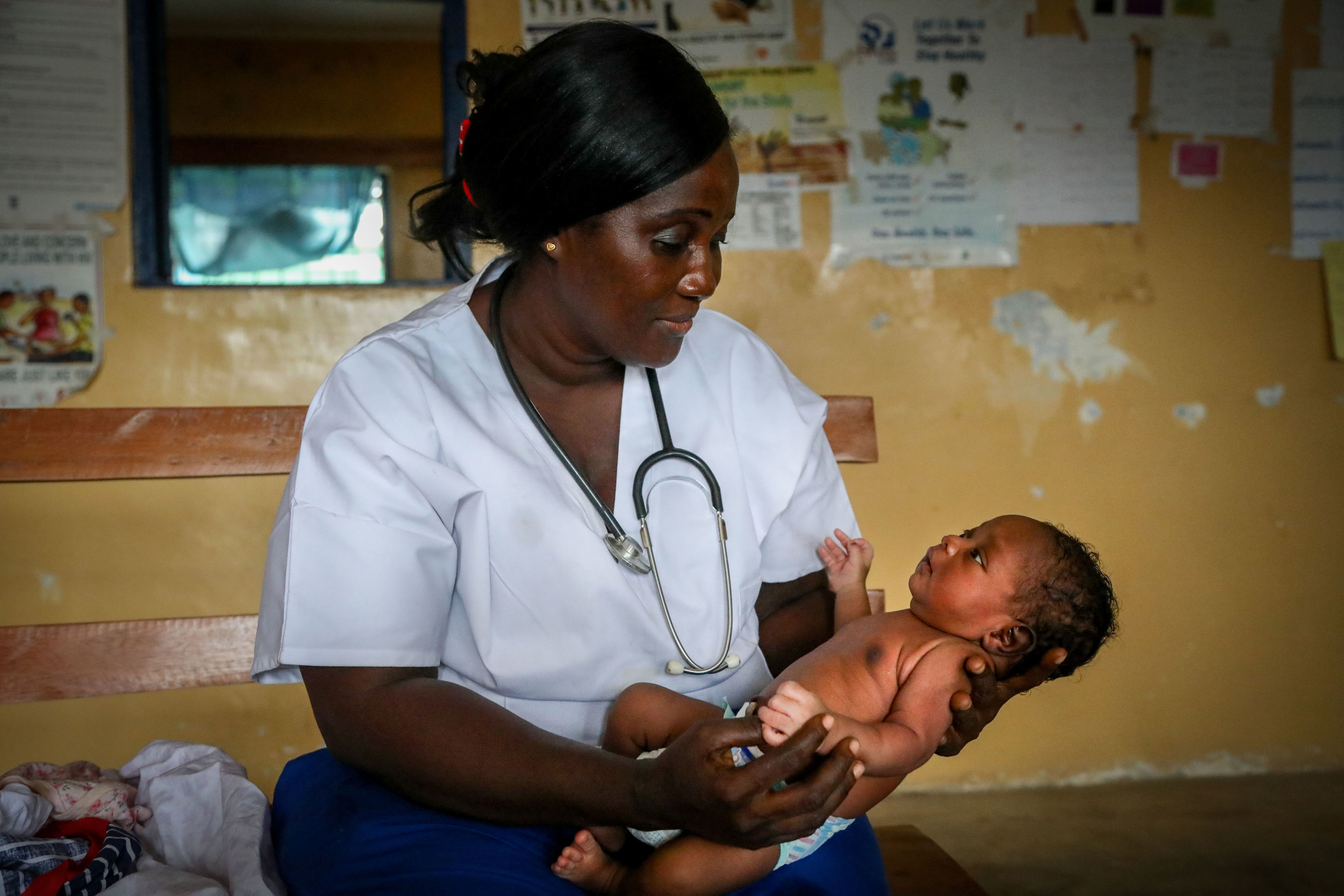
A CHARITY has hailed the work of one of the “busiest midwives in the world” who has had more than 1,000 babies named after her.
Midwife Alice Sumo has been delivering babies in rural Liberia for almost three decades.
The 48-year-old delivered her first baby on a roadside at gunpoint during the civil war, before she actually qualified as a midwife.
She encountered a woman in labour at a roadside, with an armed man standing over her, threatening to kill her if she did not stop screaming.
Ms Sumo stepped in and delivered the baby – cutting the umbilical cord with a smashed glass bottle.
She said: “She was screaming and screaming. There was an armed man there shouting, ‘We’ll kill the woman because we don’t want her screaming’.
“When I heard him say that, I said: ‘No. Don’t kill her, I can do the delivery.’
“The gunman said: ‘If you don’t do the delivery right and something happen to that woman, I will kill you.’
“I was afraid, but I carried on her delivery. There was no razor blade to cut the cord so I bust a bottle and I cut the cord with that.”
Charity Save the Children said that the midwife’s work has led to countless children being named after her, ranging from a newborn to a 30-year-old.
The midwife has not only influenced the names of girls, but boys have also been called male equivalents of Alice, including Alex or Ellis, according to the charity.
It is estimated that more than 1,000 babies have been named after her.
“To me the name Alice is an action name,” the midwife said.
“Alice people are active people, they are caring people, they are loving people. A, the first letter in the alphabet. A for action.”
Ms Sumo, from Montserrado county, outside Liberia’s capital Monrovia, has worked through the west African country’s civil war to the Ebola crisis.
At the start of her career heavily pregnant women would have to walk up to eight hours from their villages to a makeshift clinic to give birth.
But she is now in charge of a Save the Children maternal health clinic in a rural community in Liberia.
It is one of five clinics and facilities built by the charity in 2013 and includes a solar-powered vaccination refrigerator, a hand pump for clean water next to the clinic, which also serves the local population, and a motorbike enabling volunteers and staff to reach remote areas and to transport patients.
“Since the clinic was built there is no danger, and there is no infection, the place is sterilised, and everything is intact,” Ms Sumo added.
Simon Wright, Save the Children’s director of international development, said: “With all the babies named after her Alice must be one of the busiest midwives in the world and without her many lives might have been lost.
“Alice’s incredible story is a fitting tribute to those midwives who work tirelessly to deliver babies and save lives in some of the most challenging conditions around the world – many of whom Save the Children is honoured to support and train.
“It also speaks volumes about the generosity of the British public, because through money raised here in the UK back in 2013, we were able to build and equip the clinic where Alice now works, and where thousands of mothers have given birth in a safe and private environment.
“In a country where one in three women gives birth without a skilled medical professional by their side, this clinic and the midwives who work there are a reminder of the life-saving results that aid can have.”
The charity said that in Liberia in 2016, one in 15 children died before their fifth birthday.
Ms Wright added: “This is a heart-breaking statistic when we consider that child mortality there and around the world could be greatly reduced by simply improving free access to healthcare.
“That’s why this week Save the Children is at the World Health Assembly in Geneva calling on countries around the world to commit to Universal Health Coverage – which would enable children and families access to the healthcare they need without suffering financial hardship.”
For more information on the global children’s charity, visit www.savethechildren.org.uk

Enjoy the convenience of having The Sunday Post delivered as a digital ePaper straight to your smartphone, tablet or computer.
Subscribe for only £5.49 a month and enjoy all the benefits of the printed paper as a digital replica.
Subscribe